Post-pandemic luxury travel has seen an increasingly world-wise traveller looking to spend time in off-the-beaten-path destinations and resorts rooted in nature that offer distinct character and champion meaningful, sustainable practices. Concealed on the edge of the Celestial Kadavu Island Group, Kokomo Private Island, the most glamorous resort in Fiji, expertly balances both.
A passion project of avid sailor, diver, and Australian property developer Lang Walker AO (Order of Australia Officer), Kokomo has been committed to ocean conservation since opening in 2017. And exemplifying the resort’s ongoing efforts to operate as an environmentally sustainable destination and preserve this pristine island habitat in the South Pacific are resident marine biologists Cliona O’Flaherty and Viviana Taubera.
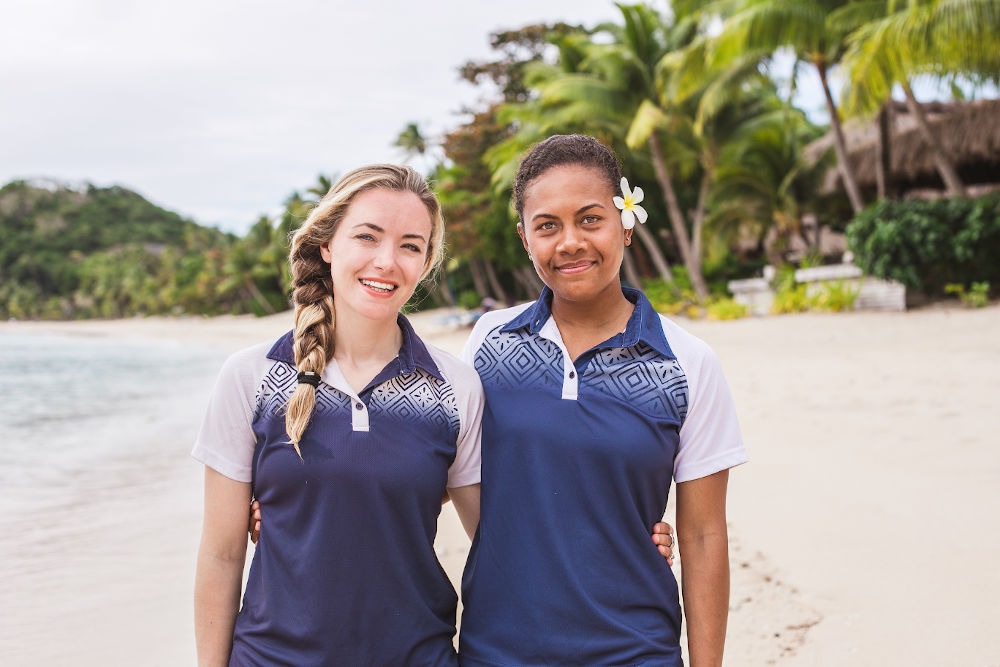
After graduating with a zoology degree from Trinity College in Dublin, O’Flaherty swapped Ireland for Fiji in 2014 to volunteer with a marine conservation organisation on Beqa Island. Three years later she answered an advertisement for a female dive instructor, which serendipitously led to becoming Kokomo’s resident marine biologist. Since then, O’Flaherty has spearheaded award-winning conservation programmes for the resort, including launching a coral restoration project and helping advance a manta identification acoustic tagging program to track movement, collect data and increase protection for the mantas in Fiji.
Another integral member of Kokomo’s marine biology team is Viviana Taubera. A Fijian native who grew up beside the sea, fishing with her dad and collecting shellfish with her mum, Taubera graduated from the University of the South Pacific with a bachelor’s in marine science. A passionate scuba diver, she is dedicated to preserving marine life and helping educate the younger generation on the importance of securing a sustainable future for the planet, making her a naturally perfect fit for the team at Kokomo.
Kokomo Acoustic Manta Project
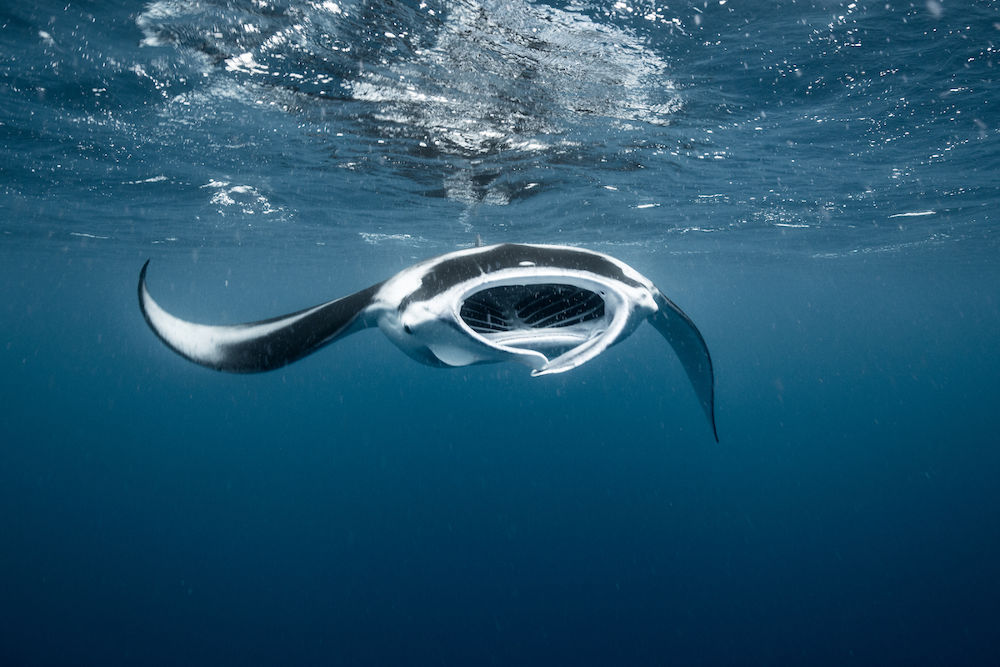
Among the most charismatic creatures in the ocean, mantas are also some of the most endangered. “Targeted and bycatch fisheries, plus a demand for their gill plates in traditional Asian medicine markets have had a devastating impact on populations worldwide,” said O’Flaherty. Launched in connection with Manta Trust Fiji, she and Taubera have been working with fellow marine biologist and Manta Trust project leader Luke Gordon on the three-year study gathering data on the manta population around the Kadavu Group.
Little is known about manta rays around South Pacific island nations like Fiji, but O’Flaherty said it’s hoped that the data collected will enable researchers and conservationists to better understand their movements and actively protect them within the region. She added: “One of the biggest struggles with the Fijian government is they don’t have funding for this type of research. So, it’s great where someone like Lang can step in and help get such as well-established and robust scientific study set up and funded to help protect this incredible species.”
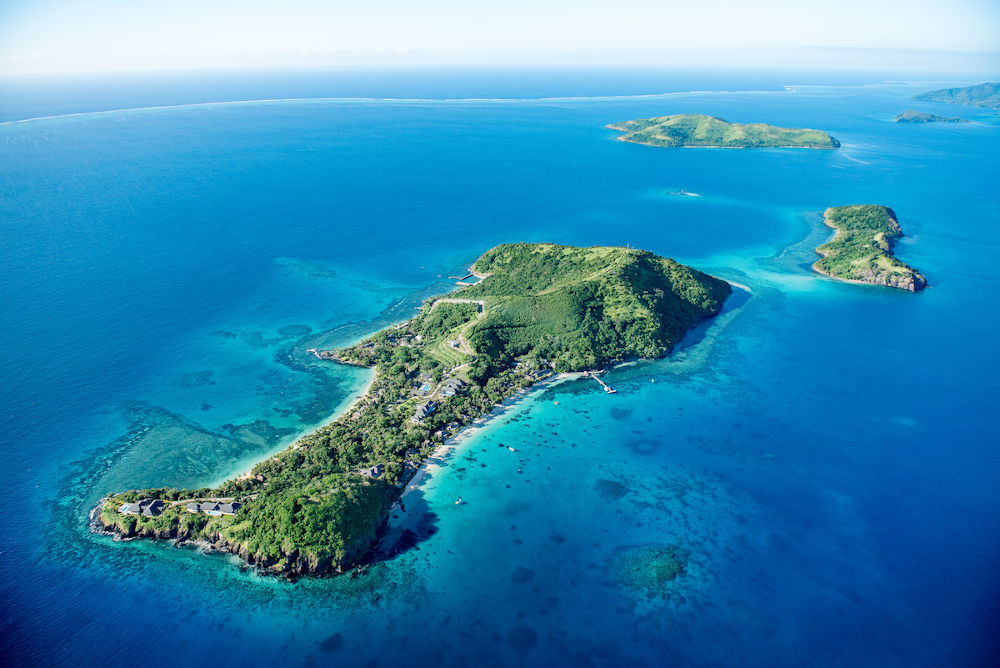
To date, Kokomo has identified 22 new mantas and helped increase the size of the Manta Trust Fiji database by over 60-percent. O’Flaherty shared that guests can also get hands-on with the project: “They can join us on a manta snorkel excursion to take photos and videos for identification purposes, and we also have the Adopt a Manta program. With that they get to name a manta ray and receive bi-monthly updates on their progress and where they have been sighted, plus news from our ongoing research.”
With manta tourism in Fiji valued at US$1.59 million almost a decade ago, alongside the educational initiatives and adoption programmes at Kokomo, O’Flaherty said they hope to eventually help establish a new standard for sustainable manta interactions across the island country. With no regulations currently in place, they would be akin to the whale-watching and eco-tourism activities modelled by the Kingdom of Tonga.
Coral Restoration Project
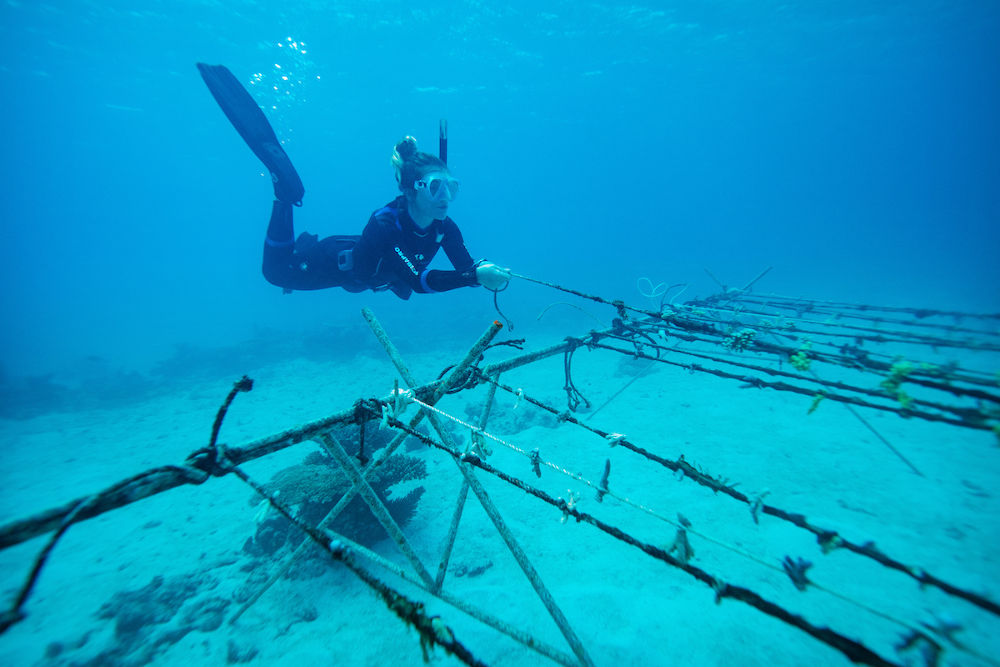
Surrounded by the Great Astrolabe Reef, one of the larger reef systems in Fiji, and home to one of the largest manta population identified to date of any other region in Fiji, scuba diving at Kokomo rewards with technicolour tropical fish and plentiful marine life including reef-sharks, turtles, dolphins, an abundance of coral reef fish. But with the ongoing issue of climate change comes rising sea temperatures and one of the biggest threats facing coral right now means that even the pristine waters of Yaukuve Island have suffered some casualties.
In response, O’Flaherty launched Kokomo’s Coral Restoration Project in 2018 with a focus on growing ‘super coral’ that could also withstand increasing temperatures to ensure the reef there continues to thrive.
“Maybe 40 years ago, ocean temperatures were between 27 and 28 degrees Celsius in summer now they’re over 31 degrees. The corals can’t just get up and walk away,” she explained, adding that like a lot of scientists, instead of getting depressed she decided to do something instead. By the end of this year, around 4,000 corals will have been transplanted back to house reef after being cultivated in special coral nurseries. “Thanks to Viviana, Kokomo was selected as having one of the best coral programs in Fiji by Victor Benito, a coral specialist and founder of educational research centre, Reef Explorer Fiji. So, she is like our coral gardening guru now and has been integral to the program’s success.”
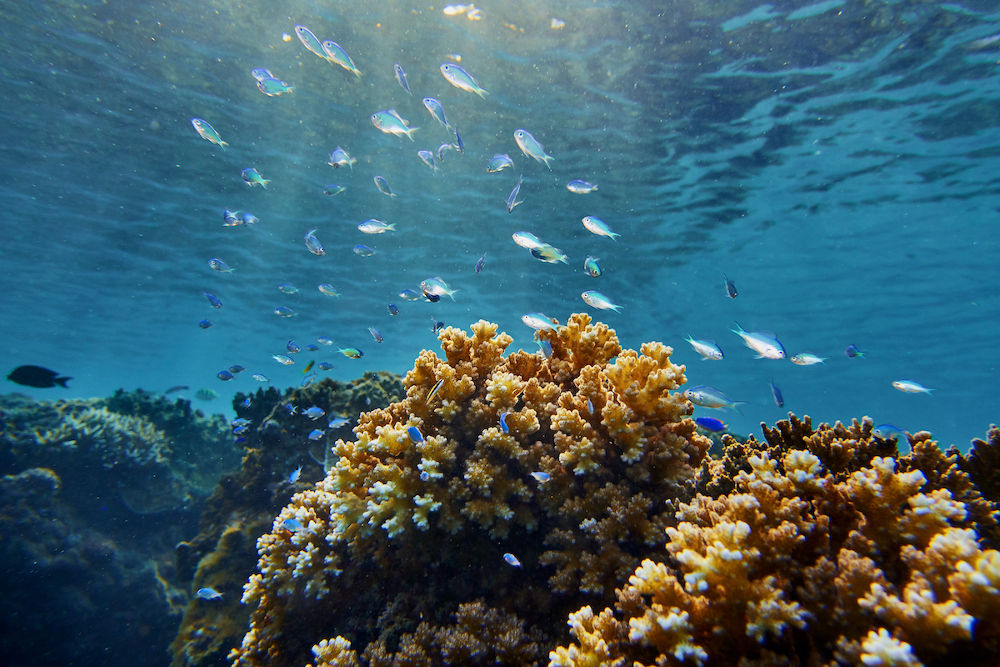
With the issue of plastic pollution sadly still prevalent, another notable sustainability initiative at Kokomo is the Seabin Project, which helps reduce microplastics and filter chemical pollutants such as oil. But sustainability programmes aren’t just limited to the water. The island is also home to free-range egg laying chickens, beehives for honey production, and a five-acre farm and hydroponics garden where flowers, fruits, and vegetables supply the resort kitchens. Guests can also get involved on the culinary side, thanks to the sustainable Catch to Plate reef fishing excursion, where the day’s line-caught bounty is taken back to shore and transformed into a chef-prepared meal or fresh off the boat sashimi.
From eco-sensitive architecture and traditional Fijian décor to a slew of initiatives helping preserve both the ocean and natural environment in addition to helping educate the local community, getting to be part of the team at Kokomo is a dream come true for O’Flaherty and Taubera. “The marine life is incredible. We’ve got eagle rays, mantas, spinner dolphins and reef sharks, but I’ve never seen so many green sea turtles as here,” said O’Flaherty. “Sometimes, we can have eight to 12 of them grazing on the seagrass flats beside the reef in the early mornings and late afternoon.”
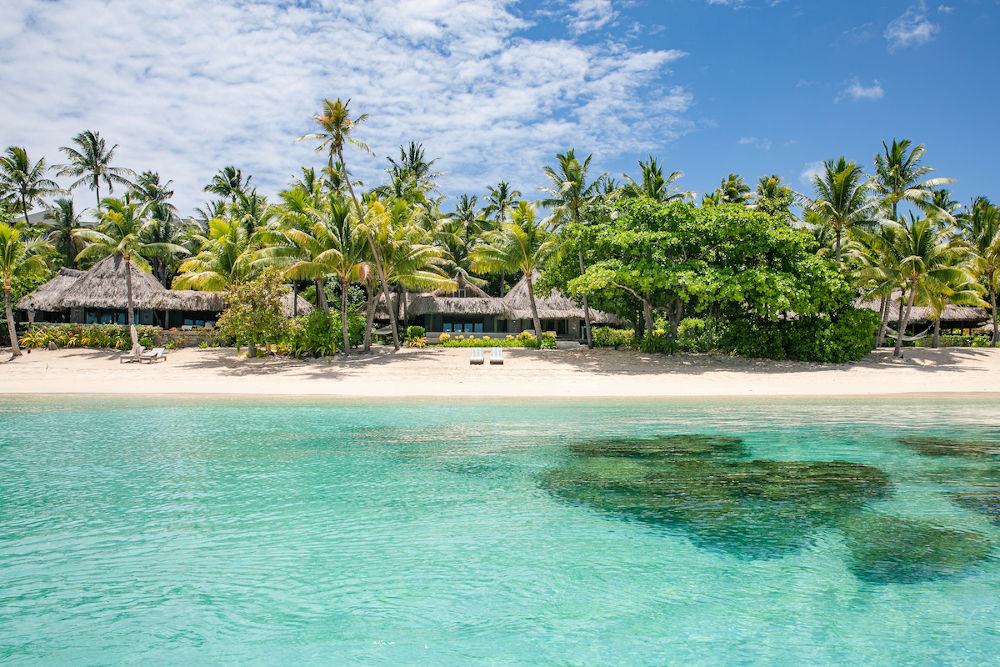
With days often spent swimming with manta rays or planting corals, O’Flaherty said while it’s been like ‘hitting gold’ to land at a place like Kokomo, working for an owner and a company that is willing and able to invest in conservation has been most the remarkable. “A key struggle in conservation is great ideas aren’t always achievable due to funding or other limitations. The owners don’t just talk about what we’re doing here; they get involved too. It’s been amazing for both Viv and I to work for leaders who are just as passionate about protecting and preserving our ocean as we are.”
Resort details and getting there
Exquisitely designed accommodations at Kokomo Private Island Fiji range from 21 beachfront villas to five hilltop residences with lagoon vistas, each featuring a private pool, outdoor shower, and walled garden. Reached in approximately 45 minutes flight from Nadi International Airport on mainland Fiji, guests can make the final hop in comfort and style aboard Kokomo’s private helicopter or Twin Otter seaplane.
The post Kokomo Private Island Fiji is leading marine conservation efforts in the South Pacific first appeared on Luxury Lifestyle Magazine.